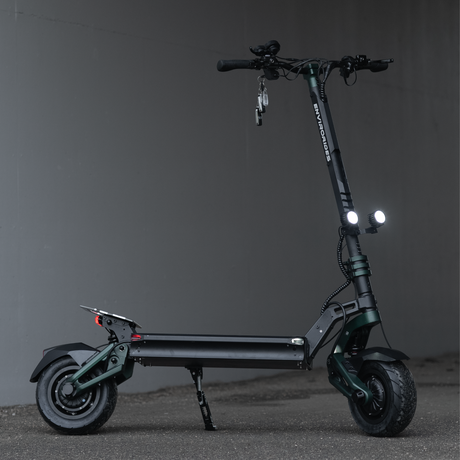On 29 January 2022, changes in the Highway Code took effect which were designed to promote safety by creating a new hierarchy of road users.
These changes provide more protection for road users who are considered to be more vulnerable, such as pedestrians and cyclists.
But what do these Highway Code changes mean for electric scooters? Here’s what you need to know.
Changes to the Highway Code
The amendments to the Highway Code which took effect in January 2022 were intended to make all road users show more consideration to others trying to access the space.
The changes create what’s been referred to as a “hierarchy of road users” with pedestrians at the top and lorry drivers at the bottom. This means that those at the bottom of the pyramid should be particularly vigilant for more vulnerable users, and take active steps to ensure their safety.
This could include giving way to pedestrians if you’re waiting to turn into a junction, or stopping to let them cross at a zebra crossing.
Cyclists are the second most vulnerable group of users and rule H3 sets out how drivers should show consideration to bike users on the road, especially on junctions, roundabouts or in heavy traffic.
However, cyclists are also expected to be vigilant for pedestrians and to give way on cycle paths to those who are on foot. The Highway Code also reminds cyclists that they must not cycle on the pavement.
For the purposes of the Highway Code, electric bikes are treated in the same way as pedal bikes.
What is the Law on Electric Scooters on the Road?
Many experts believe that further Highway Code updates will be needed in the near future because there was no attempt to make any provisions for the introduction of electric scooters.
At the moment, it’s not legal to take a private electric scooter onto a public road. However, there are numerous trials around the country where members of the public can rent an electric scooter for use within permitted zones.
Although the full results are not yet known, the indications are that the trial has been a huge success with more than one in five car drivers indicating that they would consider switching to an e-scooter for commuting.
All electric scooters currently being used on the road as part of the trials are subject to special trial regulations and aren’t specifically mentioned in the Highway Code.
Do Police Care About Electric Scooters?
With the popularity of electric scooters rocketing, and the success of the rental trial, you might be wondering whether the police take any notice of unauthorised use.
In the UK, electric scooters are classified as “personal light electric vehicles” which means that they’re covered by the same laws as drivers.
This means that the police have the power to take any illegal use very seriously - but the action they take can vary quite significantly. Some anecdotal reports suggest that illegal use of electric scooters is not always followed up by the police.
Conversely, in other areas, the police enforce the rules regarding the use of electric scooters very strictly. One report revealed that as many as 500 e-scooters had been seized in a single week.



